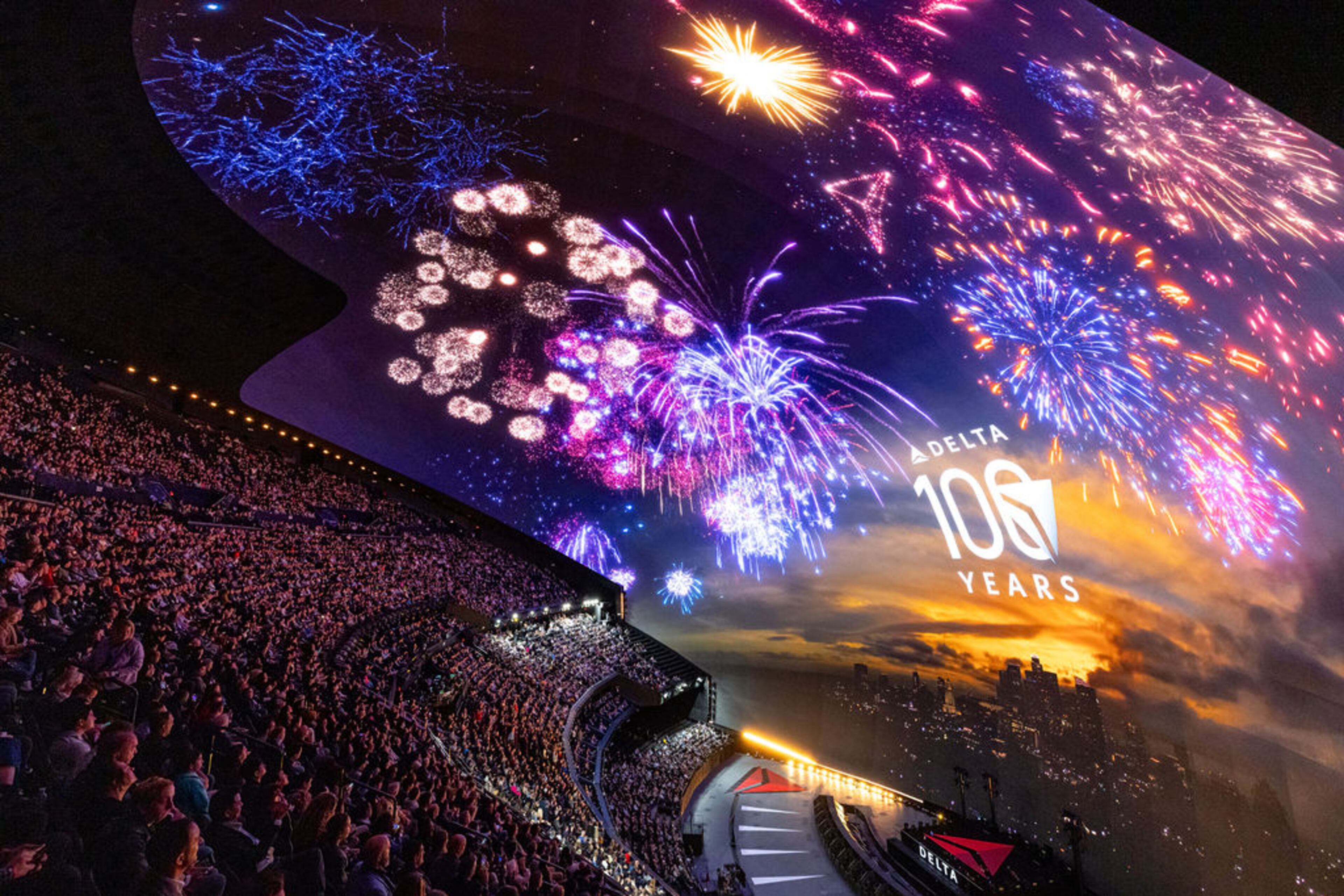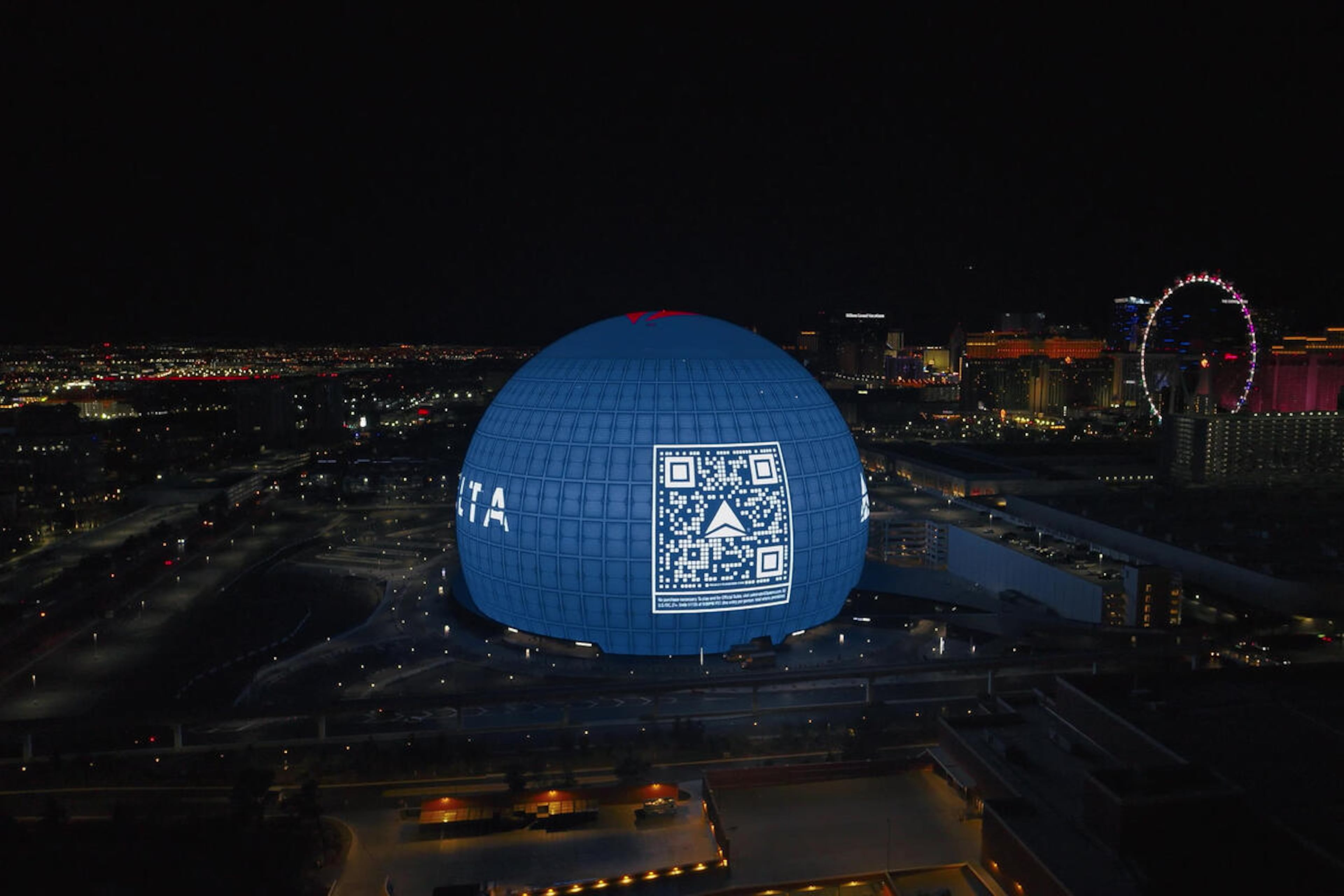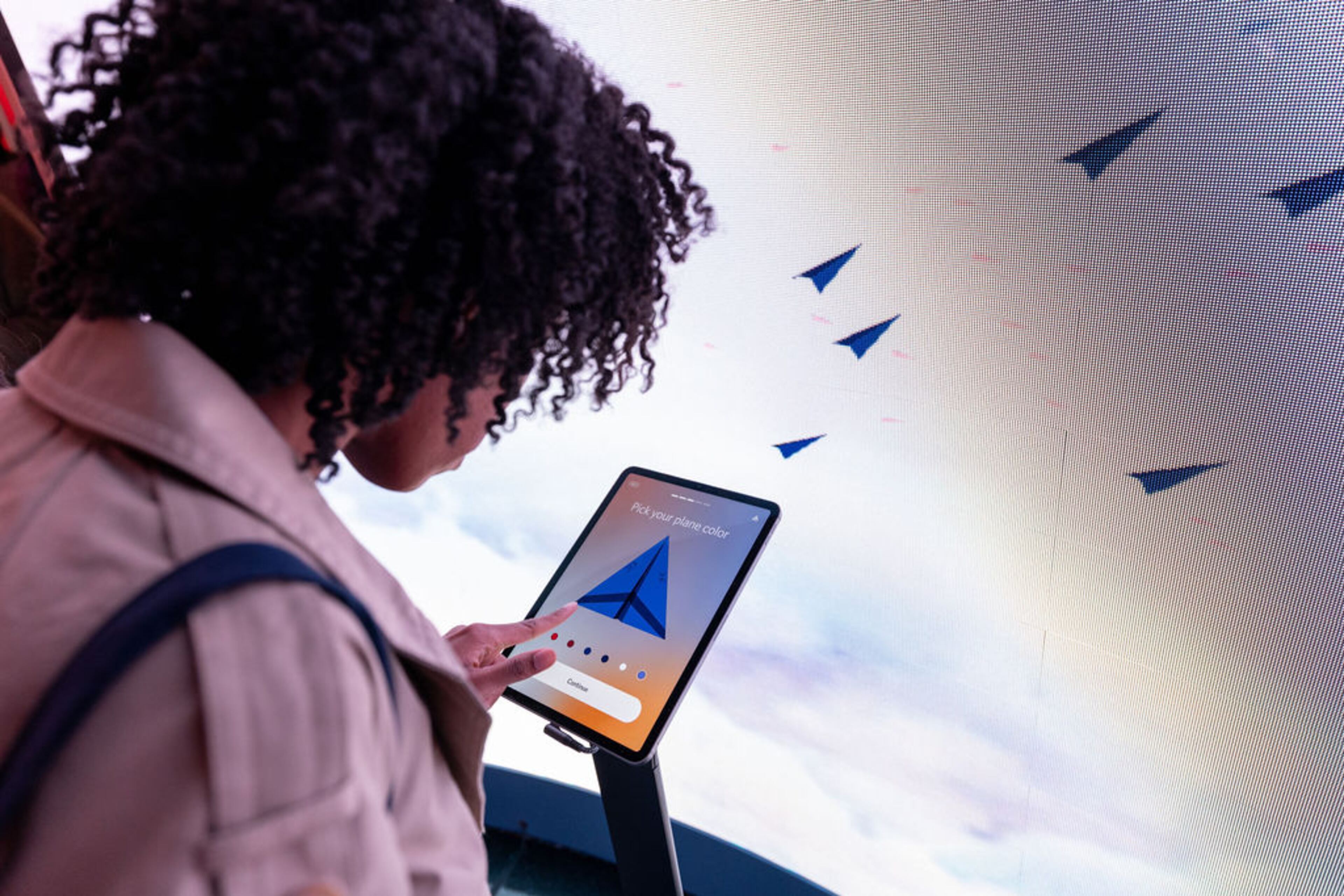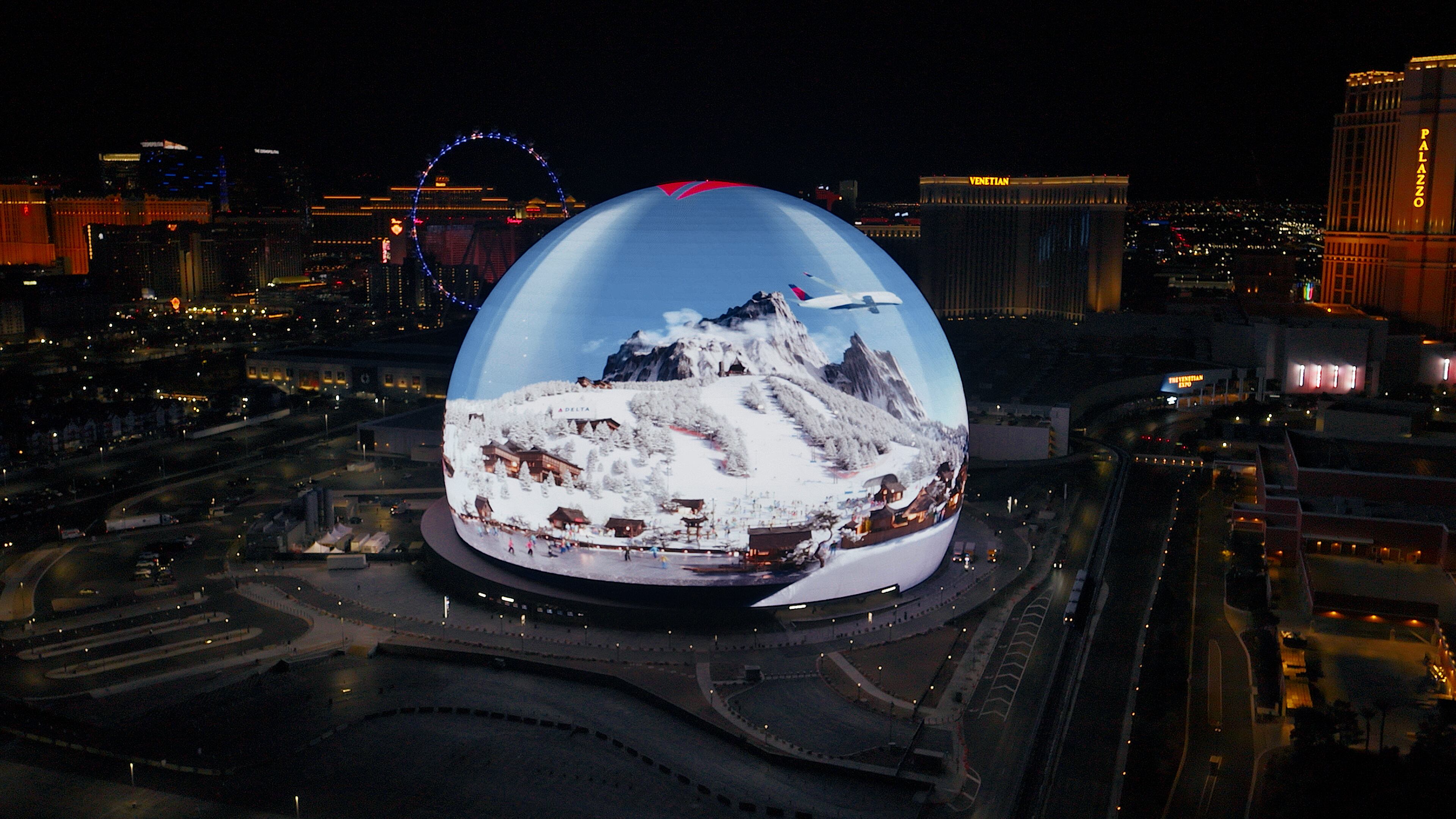Meet your newest AI chatbot: Delta Concierge





















LAS VEGAS — Delta Air Lines will become the latest company to launch a generative AI chatbot this year: Delta Concierge.
It’s one component of the Atlanta company’s ongoing strategy to improve and personalize customer experience that CEO Ed Bastian presented at the CES tech conference Tuesday, marking the airline’s centennial year with a splashy keynote at Las Vegas’ Sphere.
“Technology is transforming the way we travel, with AI at the forefront,” Bastian told a packed house.
On Tuesday the company also outlined a litany of new partnerships and coming investments, including ad-free YouTube while on board, a new relationship with Draft Kings that will allow gaming (not gambling) on flights, as well as a new partnership with Uber that will replace a long-standing one with Lyft this spring.
Bastian outlined how the “Delta Sync” seat-back experience, which is triggered when SkyMiles members log into the screen, will soon include more personalization like announcement translation, in-flight features including a “do not disturb” mode and even help upon arrival like having a rideshare waiting.
These changes tie straight back to Delta’s bottom line and how it hopes to continue outpacing its competitors’ profitability. The company has learned that improving customer experience makes travelers choose to book with them, even if it costs a bit more.
“It’s critical that we have a deep understanding of how you like to travel,” Bastian said Tuesday.
People are willing to pay 15%-20% more for a Delta experience versus its competitors, what’s known as a “unit revenue premium,” Ranjan Goswami, senior vice president of customer experience design told The Atlanta Journal-Constitution in an interview. “That is significant.”
Indeed, the metric has been key to Delta’s position atop the industry in terms of profitability, Bastian told investors last fall.





















The future Delta has planned
While Delta came under fire for technological vulnerability during its CrowdStrike meltdown last year, the airline is focusing its centennial message on its consumer-facing technological investments.
Delta Concierge will start small this year with “brass tacks things that we know people struggle with” like reminders about passport expiration and visa requirements, but the possibilities are immense, predicts Goswami.
One day the technology, through Delta’s app, might be able to help you plan a trip and replace your own travel research, suggest concerts or events you might like while you’re traveling, help you pack based on expected weather, help you deal with an itinerary change, help you find your way through an airport, as well as sift through in-flight entertainment options based on your preferences.
Bastian said it will “serve as a thread across your experience,” with natural language text and voice input capability. The chatbot will be able to book end-to-end travel, just via voice, he explained.
The company has been using AI for years to help manage its fleet and crew, and the idea of Delta Concierge was first introduced at CES in 2020, with a five-year timeline. But the recent leaps in generative AI technology are enabling a next level version, Goswami said.
It will have a major impact on how Delta employees interact with customers too, whether that’s a reservation staffer trying to help solve a problem or a flight attendant greeting a frequent flyer on board. “People want to be seen,” Bastian told the crowd Tuesday.
The idea is that employees at the check-in counter, at the gate and then on the plane would know details about travelers to help them in a more personalized way. “This isn’t a futuristic vision; this is something we’re starting on today,” Bastian said.
Flight attendants already have smartphones that tell them important information about customers, and soon pilots will get the same tool too, Goswami explained.
“We’re just serving up information that’s relevant to our customers, and we let our flight attendants and now our pilots or our reservation specialists choose how they want to use that information,” he said.
The groundwork
The capacity to do all of this builds on the company’s existing commitment to provide free Wi-Fi to all logged-in SkyMiles members, Goswami says. It’s already available in 730 of the company’s 1,300 airplanes, and the rest will be done in the next 12 months, he said.
Delta’s new plane orders arriving in late 2026 will have cloud-based systems and servers on board to enable seat-back screen streaming and ultimately 50 times more content, he said. Those will also allow travelers to directly stream entertainment like Paramount+ and YouTube on the seat-back screens — as opposed to current access just on linked devices.
And it’s just the beginning, he argues. The logged-in experience is allowing the airline to collect tons of data: 2.6 billion rows of data just last year, he said. That trove will continue to feed a more and more personalized and “smarter” experience for travelers over time.
“I don’t think anyone else can do it quite frankly anytime soon,” Goswami said.
That doesn’t mean others aren’t trying. United Airlines has already been incorporating ChatGPT into its app, and the company is partnering with Starlink to bring free Wi-Fi to its entire fleet. But Goswami isn’t concerned given Delta’s lead and “momentum.”
“We think we’re setting the standard. When I read (United’s) recent press release, it actually sounded like our strategy, and that’s probably the best form of flattery is imitation.”



